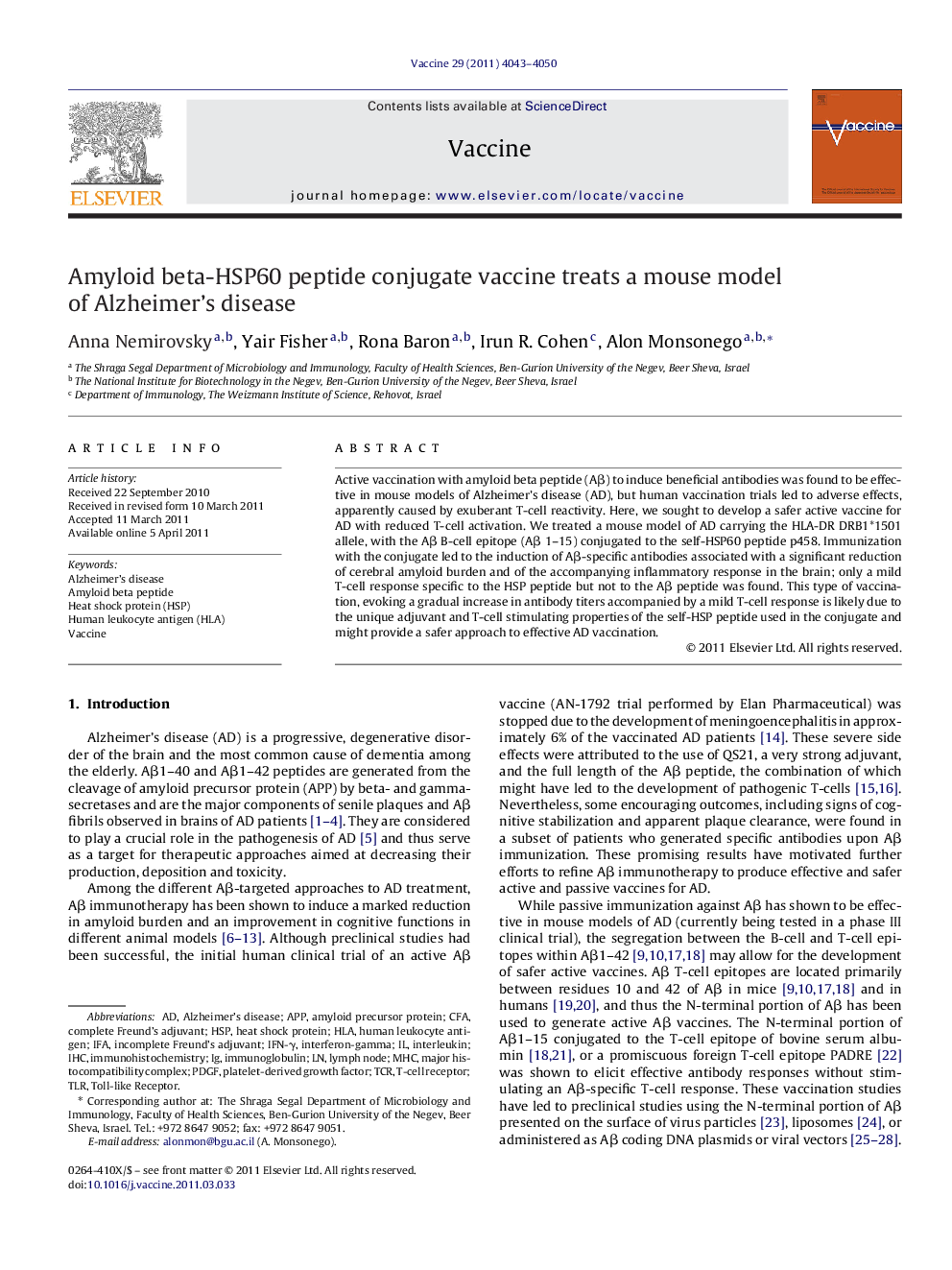| Article ID | Journal | Published Year | Pages | File Type |
|---|---|---|---|---|
| 2403490 | Vaccine | 2011 | 8 Pages |
Active vaccination with amyloid beta peptide (Aβ) to induce beneficial antibodies was found to be effective in mouse models of Alzheimer's disease (AD), but human vaccination trials led to adverse effects, apparently caused by exuberant T-cell reactivity. Here, we sought to develop a safer active vaccine for AD with reduced T-cell activation. We treated a mouse model of AD carrying the HLA-DR DRB1*1501 allele, with the Aβ B-cell epitope (Aβ 1–15) conjugated to the self-HSP60 peptide p458. Immunization with the conjugate led to the induction of Aβ-specific antibodies associated with a significant reduction of cerebral amyloid burden and of the accompanying inflammatory response in the brain; only a mild T-cell response specific to the HSP peptide but not to the Aβ peptide was found. This type of vaccination, evoking a gradual increase in antibody titers accompanied by a mild T-cell response is likely due to the unique adjuvant and T-cell stimulating properties of the self-HSP peptide used in the conjugate and might provide a safer approach to effective AD vaccination.
